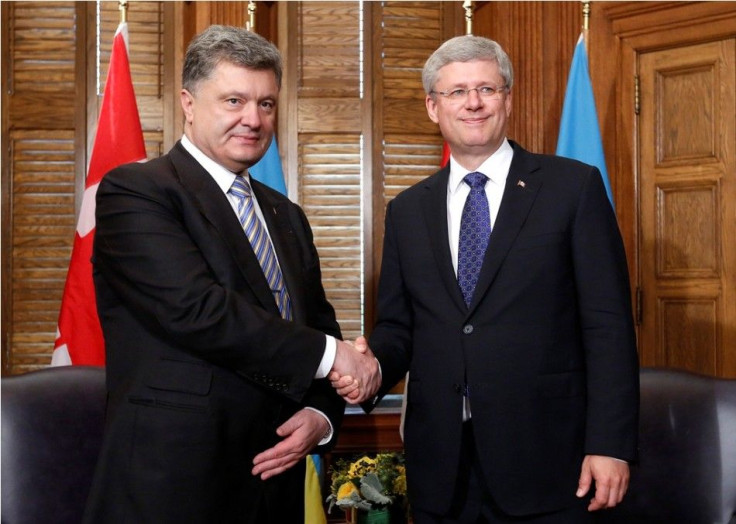Canada To Cheer As Economy Set To Post Surplus This Year: New Forecast Rules Out Doubts Over Another Deficit

Canada is set to spring a surprise by posting a revenue surplus this year itself. It is pretty earlier than what Prime Minister Stephen Harper's had forecast for Canadian economy as a turnaround.
The good news was shared by the economists at the Toronto Dominion (TD) Bank that released its forecast last Wednesday. Canada's Finance Ministry also brought out a performance report of the 2012-13 fiscal year. That report endorsed Prime Minister from Mr. Harper's announcement that a deficit of 5.15 billion Canadian dollar (USD4.63 billion) existed in the past fiscal, reported Wall Street Journal.
But the public-finance improved dramatically beyond Mr. Harper's own estimations. The Prime had admitted the brewing of a small deficit in the current fiscal also, before the Canadian economy headed to post a surplus in 2015-2016 fiscal year, during the election time.
Better Revenue
The TD Bank economists noted that the government's finances are improving faster and Ottawa may post a 5 billion Canadian dollar budget surplus this fiscal year and a cumulative of 56 billion Canadian dollar in the next five years. The forecast of the bank is supported by noticeable improvements in revenue flow and better cost control by the Federal government. An economic expansion is also taking place as Canada is graced by the improvements happening in the U.S. economy. The BMO Capital Markets also forecast an earlier-than-expected turn around towards a revenue surplus.
Poll Promises
Bank TD's forecast also offered the depth in verifying why Mr. Harper was quick in announcing possible tax-cuts that his Conservative Party had pledged during the 2011 elections. The Conservative made many promises that included income splitting for families with dependent children below the age of 18. It is expected to cost 46 billion Canadian dollar for fiveyears. Tax credits for children-centric activities and a doubling of contribution for tax-free savings are also on cards.
In the matter of tax relief, Harper's party follows a tactical approach. Instead of making an outright cut in personal income tax rates, inviting a heftier price tag, they have been taking specially targeted tax measures in all the nine years in power. It is a way of selectively reaching out to demographic groups and households, who are likely to vote for them.
Meanwhile, Kelly McParland in a column in National Post cautioned the conservatives against splurging the newly accruing surplus. She said it was a real danger if conservatives wanted to exhaust one third of the projected surplus just to fulfill their poll pledges of 2011 and the balance on a few more frantic decisions they may take to win the election.





















